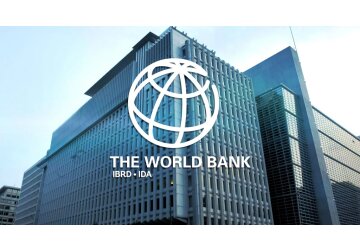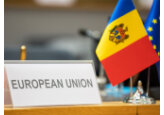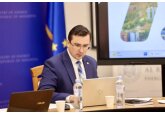
The World Bank will allocate $54.5 million to Moldova for the reconstruction of public buildings and centralized heating systems, with an emphasis on educational institutions.
As noted in the World Bank report, this money is planned to be allocated to our country as part of a major initiative launched by the World Bank to improve energy efficiency in Europe and Central Asia. The first phase of this initiative includes projects in Moldova and Turkey. In particular, the WB announced the launch of an ambitious new regional initiative aimed at significantly accelerating energy efficiency to ensure secure, affordable and clean energy supplies in Europe and Central Asia. The 10-year Scaling Up Energy Efficiency in Europe and Central Asia Program (E3 Program) is expected to allow saving more than 63 terawatt-hours (TWh) of energy over the life of its investment, equivalent to the annual electricity production of Switzerland and reducing CO2 emissions by 18.7 million metric tons. Under the E3 program, the World Bank will provide $1.46 billion in financing and attract an additional $2.4 billion from the public, private and development sectors, including $1.5 billion in private investment. The first funds for energy efficiency programs have already been allocated to 4 countries, and within 10 years new states will join them. Investments will be directed to government institutions, residential buildings and equipment, modernization of industry and improvement of district heating systems. “Investing in energy efficiency is part of the World Bank Group's vision to accelerate the transition to clean and efficient energy to prevent the worst impacts of climate change. Improving energy efficiency can lead to budget savings on other development priorities and significantly reduce the need for investment in new energy sources,” said Antonella Bassani, World Bank Vice President for Europe and Central Asia. Efficient systems enable businesses to operate cleaner and more competitively, reduce household energy costs, reduce air pollution, reduce carbon emissions and create jobs, she said. As noted, the E3 program will develop country projects based on national plans and support access to sustainable financing. Initial projects under the program include $300 million in World Bank funding for the renovation of Turkey's central administration buildings and $54.5 million for the renovation of public buildings and district heating systems, with a focus on educational institutions in Moldova. This project in Moldova will be supported by a $5 million grant under the Moldova Growth, Resilience and Opportunities for Well-Being (M-GROW) program. Additional stages and projects are planned in Turkey, Moldova, Montenegro, Uzbekistan and other countries. Over time, the E3 program is expected to help countries transitioning from small government-funded energy efficiency programs to national-scale programs with larger commercial funding. Government funding will be used, inter alia, to demonstrate needed investments to attract commercial financiers, test new business models, reduce investment risks and provide grants in parallel with commercial financing. As the WB report notes, 18 countries in Europe and Central Asia have already committed to doubling annual energy efficiency improvements through 2030 under COP 28. However, the region still contains some of the world's most energy-inefficient economies, which are also the largest consumers of carbon. The E3 program will help overcome market failures associated with energy efficiency investments, such as high transaction costs, lack of codes and standards, general lack of awareness and the need to accept behavioral issues. The program will strengthen policies and regulations, help develop strong agencies and institutions, create and disseminate reliable data, expand market opportunities, and mobilize private capital. World Bank Regional Director for Infrastructure Charles Cormier noted that the recent energy crisis has highlighted the urgent need for large-scale energy efficiency measures that will help conserve limited natural resources. Energy efficiency remains the most accessible and cost-effective way to meet energy needs compared to new energy production. “Our program is based on many years of experience supporting countries in Europe and Central Asia in improving energy efficiency. Although this is a diverse region, these countries share many common barriers and national priorities that the program will help address, while creating a platform for information and knowledge exchange through a regional network,” he said. The program will build a coalition of regional and global organizations, including international financial institutions, donor partners and knowledge-sharing and capacity-building organizations. The regional network will be funded by an initial $5 million grant from the Energy Sector Management Assistance Program (ESMAP). This regional network will facilitate knowledge exchange and creation, as well as coordination and harmonization of national approaches. The network's priority topics will include policy formulation and implementation, development of outreach programs, and measurement and verification of energy efficiency measures. The E3 program will run in parallel with the recently launched ECARES (Scaling up Renewable Energy in Europe and Central Asia) program. While the ECARES program focuses on providing clean energy, E3 aims to reduce energy demand. Countries interested in participating in both programs are invited to submit their letters of intent. // 28.06.2024 — InfoMarket







